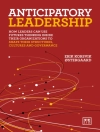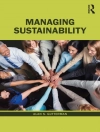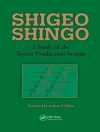This excellent, pioneering book is a must-read as we enter the new millennium. –David J. Farmer, State University of New York Comprehensive and timely, Postmodern Management and Organization Theory provides a critique of postmodern theory as it stands today. The text gives an overview of issues as they relate to management and organization theory and its history and assembles in one volume a variety of important works on postmodern philosophy–including feminist, cultural, and environmental philosophies. The contributors address the future of postmodern advancement in management and organization theory and method, establishing an agenda for future research. This thought-provoking book will be useful to scholars, researchers and upper-level students in organization theory, organization behavior and change, management, and industrial psychology.
Daftar Isi
Introduction – Robert P Gephart Jr, David M Boje, and Tojo Joseph Thatchenkery
Postmodern Management and the Coming Crises of Organizational Analysis
PART ONE: DECONSTRUCTING ORGANIZATIONAL ANALYSIS: CRITIQUE, REFLECTIONS, AND ALTERNATIVES
Management, Social Issues, and the Postmodern Era – Robert P Gephart Jr
Exploring the Terrain of Modernism and Postmodernism in Organization Theory – John Hassard
Storytelling at
Administrative Science Quarterly – David M Boje, Dale E Fitzgibbons, and David S Steingard
Warding Off the Postmodern Barbarians
PART TWO: BEYOND
MAN-AGE-MENT – GENDER, DISCOURSE, AND ORGANIZATIONAL VOICES
Woman as Constituent Directors – Patricia Bradshaw
Re-Reading Current Texts Using a Feminist-Postmodernist Approach
Liberation from Within? – Ian Atkin and John Hassard
Organizational Implications of Irigaray′s Concept of `Residue′
Do You Take Your Body to Work? – David Barry and Mary Ann Hazen
A Theory of Stakeholder Enabling – Jerry M Calton and Nancy B Kurland
Giving Voice to an Emerging Postmodern Praxis
PART THREE: FROM
TECHNO-LOGY TO
ECO-LOGY: EPISTEMOLOGICAL ISSUES IN ENVIRONMENTAL MANAGEMENT
Ecological Futures – Alfonso Montuori and Ronald E Purser
Systems Theory, Postmodernism, and Participative Learning in an Age of Uncertainty
Simulacral Environments – Robert P Gephart Jr
Reflexivity and the Natural Ecology of Organizations
PART FOUR: POSTMODERN PEDAGOGY
Pedagogy for the Postmodern Management Classroom – Grace Ann Rosile and David M Boje
Greenback Company
Reconstructions of Choice – Ghazi F Binzagr and Michael R Manning
Advocating a Constructivist Approach to Management Education
Modernism, Postmodernism, and Managerial Competencies – Eric H Neilsen
A Multidiscourse Reading
PART FIVE: CRITICAL ISSUES IN GLOBAL ORGANIZATIONAL STUDIES
Metaphors of Globalization – Stewart R Clegg and John T Gray
Organizations as a Play of Multiple and Dynamic Discourses – Tojo Joseph Thatchenkery and Punya Upadhyaya
An Example from a Global Social Change Organization
Technologies of Representation in the Global Corporation – Kenneth J Gergen and Diana Whitney
Power and Polyphony
Conclusions – Robert P Gephart Jr, Tojo Joseph Thatchenkery, and David M Boje
Reconstructing Organizations for Future Survival
Tentang Penulis
Robert P. Gephart Jr. is a professor of strategic management and organization at the University of Alberta’s School of Business in Edmonton, Canada. He received his Ph D from the University of British Columbia in 1979. Dr. Gephart has published in several important journals including the Administrative Science Quarterly, the Academy of Management Journal, Journal of Management, Organization Studies, Organizational Research Methods, and Qualitative Sociology. He is also the author of Ethnostatistics: Qualitative Foundations for Quantitative Research (SAGE, 1988) and a coeditor of Postmodern Management and Organization Theory (SAGE, 1996). Dr. Gephart served as an associate editor of Organizational Research Methods and serves on the editorial boards of the Academy of Management Journal and the Academy of Management Review. He received the 2015 SAGE Distinguished Career Award from the Research Methods Division of the Academy of Management. His current research interests include ethnostatistics, risk sensemaking, and organizational change management.












